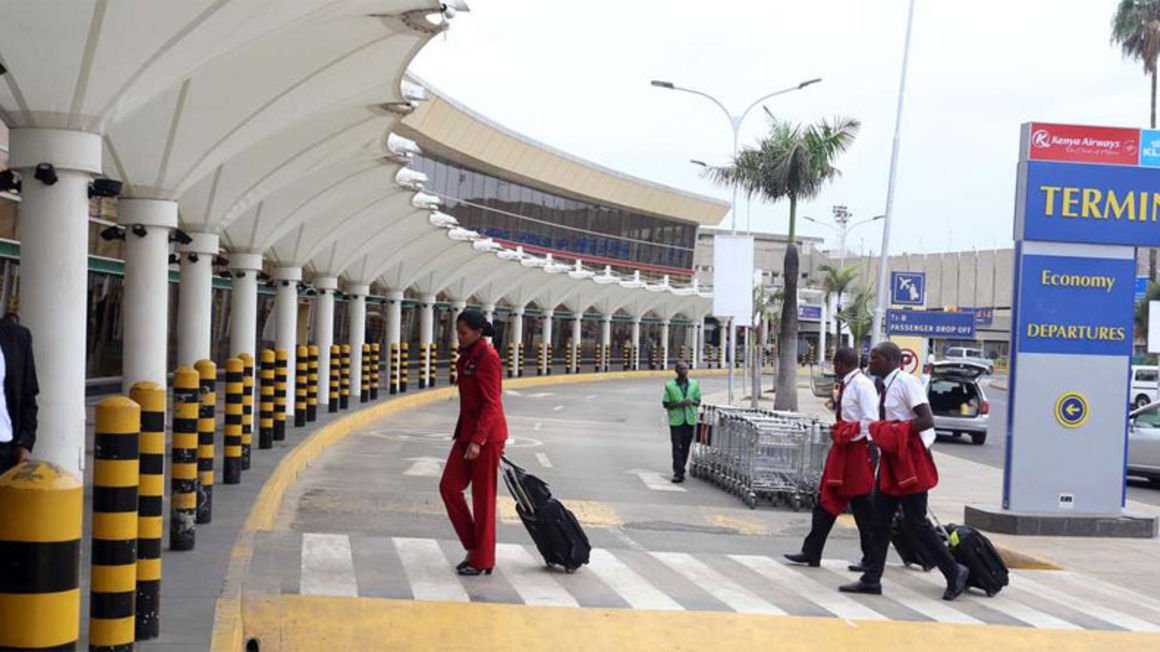The Jomo Kenyatta International Airport (JKIA) in Nairobi. FILE PHOTO | NMG Jet fuel consumption rebounded in third quarter of last year, jumping 68.5 percent on a gradual reopening of economy after months of suspension of both international and domestic flights to curb the spread of coronavirus.
Data by the Petroleum Institute of East Africa (PIEA) shows that consumption in three months to September rose to 104.53 million litres compared to 62.03 million litres in the previous quarter ended June.
This puts daily consumption at about 1.14 million litres compared with 0.68 million litres that was recorded in the period in which air travel was restricted to few charted flights and cargo services.
The recovery came on the back of State decision to restart local flights at the end of July and international ones on August 1, offering reprieve to the aviation industry.
The combined jet fuel consumption between April and September is, however 37.56 million litres or 18.4 percent lower than the 204.122 million litres that were consumed in the first three months of the year—prior to Covid-19 disruption.
Kenya had banned international flights in late March, forcing Kenya Airways and other carriers to limit themselves to fly domestic routes, which were later cut off as cessation of movement began in Nairobi, Mombasa, Kilifi and Kwale.
The halting of flights saw Kenya Airways passenger revenue retreat by 53 percent to Sh20.23 billion in the half year to June 2019 as many passengers cancelled flights.
The lockdown saw jet fuel sales plunge, giving marketers straight months of reduced sales and badly affecting their revenue streams.
Consumption of petrol and diesel has also improved as many of the people who had retreated to work from home resume near normal operations.
Combined fuel consumption closed September at 3.995 billion litres, being 15 percent lower than the nine-month consumption in the previous year.
